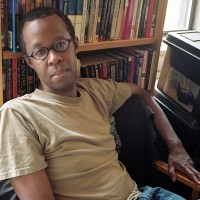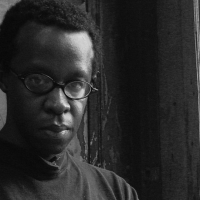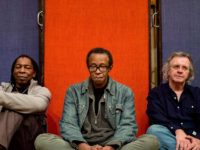When Billy Bang walked into a Helsinki studio in February of 2011 with trombonist Dick Griffin, pianist Andrew Bemkey, bassist Hilliard Greene and drummer Newman Taylor-Baker, he would be recording for the last time. Da Bang! is the product of the final session of this jazz violin great, who a mere two months later would be dead from cancer at 63.
Da Bang! is remarkable in its unconcern — borne out of not knowing — of the impending doom. The state of mind of Bang who was unaware that his cancer had spread to his liver, was reveling in life even as death was around the corner; he spoke during these sessions of how music was a healing power to him. The living vitality of his violin is manifestly evident in a man still at the peak of his powers, plucking, strumming, scraping and so rhythmically aware like no one else when there’s no one else performing at the extended intro of Don Cherry’s “Guinea.” It shows again within the delicate, fragile melancholy he displays with his one-on-one with Bemkey, “Daydreams.”
That song is the only original one Bang brought to the coda of his career; for the rest of the fare he pays tribute to friends and influences, looking back on his career by looking not at himself but at others who inspired him.
The title song came from his FAB Trio musical partner, Barry Altschul, and was often performed by that supergroup. It’s a post bop tune at its core, but the melody is just abstract enough to allow an ace improviser to really flourish, and Bang does just that. “Law Years” is as much a showcase for Griffin as it is for the leader, whose harmony draws a bead on Ornette Coleman’s harmolodics, and even as Bang is soloing, Griffin is immediately responding while remaining in a comp role. Griffin participates by adding some swing to it, accentuated securely by Taylor-Baker.
The last two tracks are rather straightforward readings of “All Blues” and “St. Thomas,” the latter being the perfect sign off for Bang. It’s where he sounds most joyful. The man who experienced first hand the horrors of war and its disappointing aftermath, later to use music as an instrument of peace, found his inner peace in that Sonny Rollins song, and in the music of several others.
He didn’t get a chance to script his parting statement the world, but it’s not inconceivable that he wouldn’t have done it any differently than what he did with Da Bang!.
[amazon_enhanced asin=”B00CC50RUO” /] [amazon_enhanced asin=”B00005OW61″ /] [amazon_enhanced asin=”B0008G2I8S” /] [amazon_enhanced asin=”B003NLQ822″ /] [amazon_enhanced asin=”B0035LCWH0″ /] [amazon_enhanced asin=”B00387FSPE” /] [amazon_enhanced asin=”B00004NRYI” /] [amazon_enhanced asin=”B002BNXLLE” /] [amazon_enhanced asin=”B00000401P” /][amazon_enhanced asin=”B004WCSMSY” /]
Da Bang! was issued June 18 via TUM Records.
- Nels Cline – ‘Consentrik Quartet’ (2025) - March 31, 2025
- Seth Walker, “Why The Worry,” from ‘Why The Worry,’ (2025): Sneak peek - March 28, 2025
- Sylvie Courvoisier + Mary Halvorson – ‘Bone Bells’ (2025) - March 27, 2025




